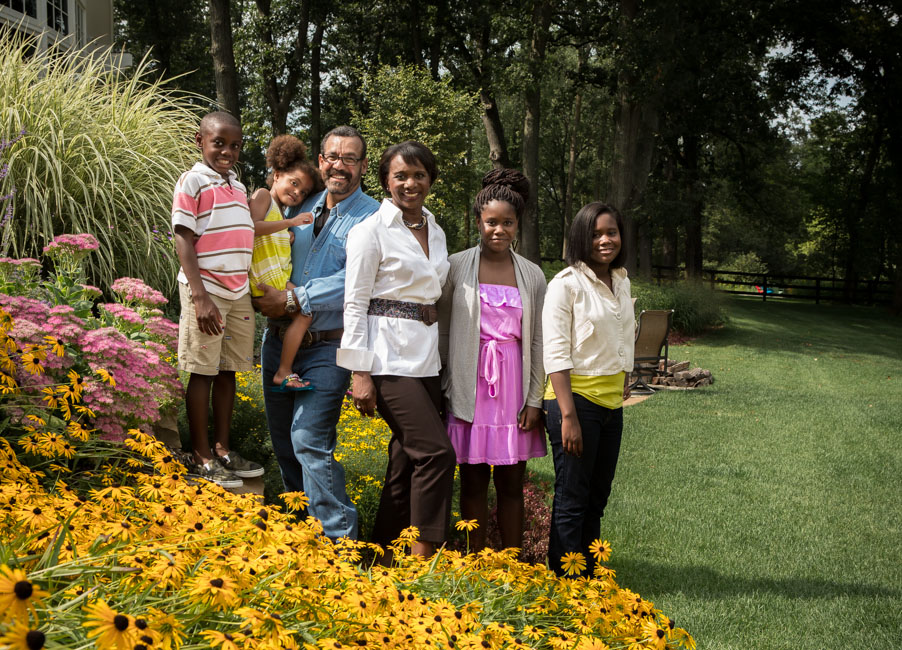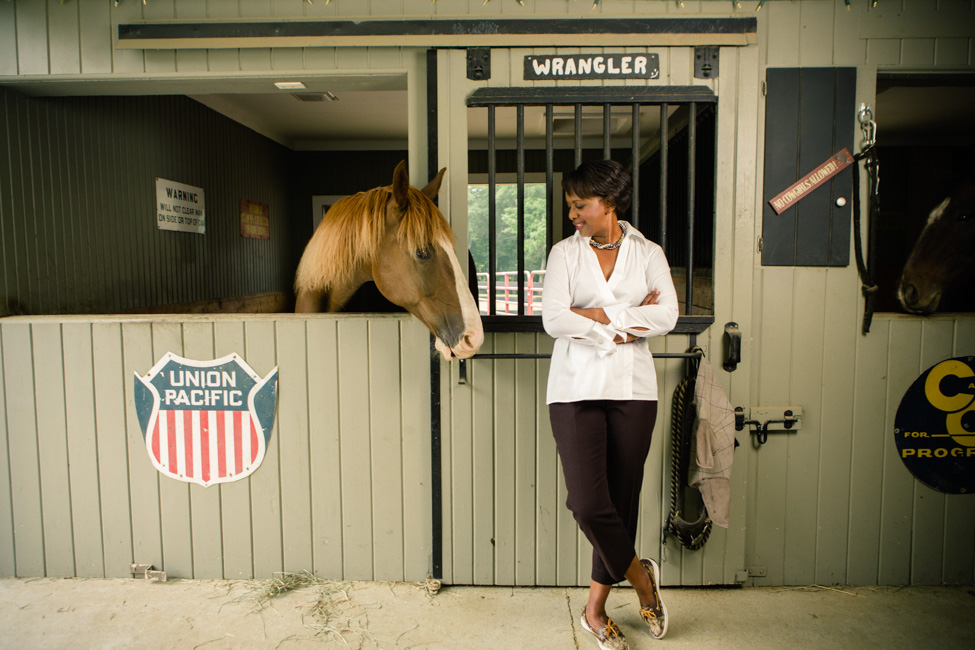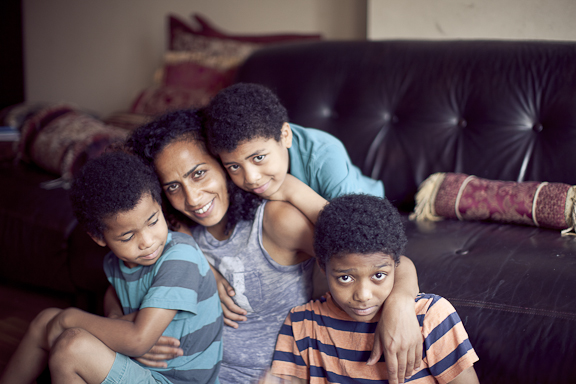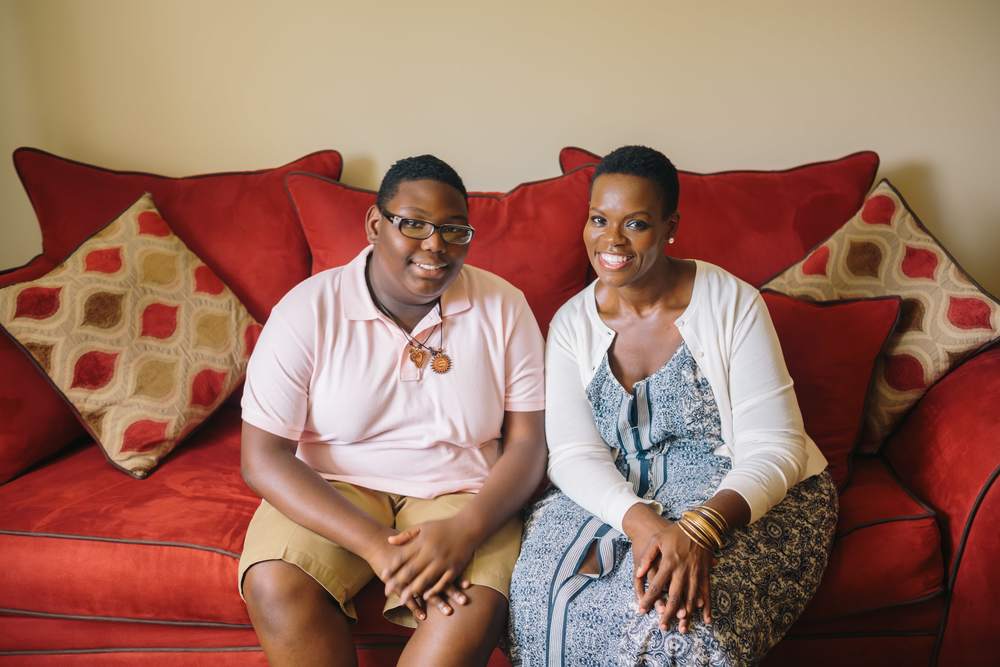Candace Matthews considers herself abundantly blessed. From getting into one of the best business schools in the country to becoming a Fortune 500 company’s division general manager by the time she was 50, Matthews hit every one of her personal milestones with a seeming ease. Every one that is, except becoming a wife and mother. Matthews spoke with mater mea about her path to motherhood and offers need-to-know tips on how to succeed in the business world.
With a C-suite job that often whisks her away from her home in Grand Rapids, Michigan to places as far flung as China, Candace Matthews knows just how important it is to find moments for herself and her family: her husband, Bruce, and their three adoptive children, Sydney, Simone, and Seth.
Nothing soothes her more like baking them a delicious apple pie, a talent she learned from her late mother.
“She taught me that baking is really all about love,” Matthews says, smiling. “You bake and put all of yourself into what you’re doing.”
Giving 100% is a concept that Candace Matthews has embodied for as long as she can remember. The youngest of 18 equally driven children, “I always just wanted to achieve,” she says now. “My parents always said, ‘Whatever you do, be the best at it.’” Sixteen of the 18 children attended college; five received masters’ degrees and two earned doctorates.

“Growing up, it wasn’t a matter of if I would go to college; it was which college I would attend,” Matthews recalls.
After getting her Bachelors of Science in metallurgical engineering and administrative and management science from Carnegie Mellon, Candace Matthews received her MBA at Stanford University in 1985, beginning what would become a long and storied path as one of the business world’s most prolific executives.
Following business school, Matthews joined General Mills as an assistant product manager at 26. (Fun fact: Candace Matthews was essential in creating the strategy that brought Chicago Bull Michael Jordan to your box of Wheaties.) She was recruited by Ann Fudge, who later became CEO of marketing company Young & Rubicam. Fudge, a woman of color herself, became a much-needed mentor and friend as Matthews began navigating the often tricky waters of the corporate world.

“As much as we don’t want to think about glass ceilings, the ceilings are real and exist nearly everywhere,” Matthews says. “The key is not to be afraid to blaze trails and break through the glass ceiling. The one thing I have learned is that politics do exist in organizations. You don’t have to be political and play the game, but you must be aware of it. It can be challenging if you don’t have someone to help you understand the game and navigate through it.”
Candace Matthews left General Mills after three years, and then went on become marketing director of Cover Girl Cosmetics, launching the brand’s first line for women of color. Over the course of 16 years, Matthews advanced her way up the corporate ladder, jumping from one plum position to the next, including a move to Atlanta for a vice-president role at Coca-Cola.
“As my career was progressing, I realized that particularly for African-Americans you sometimes have to change companies to advance more quickly,” Matthews explains.

Yet upon turning 40 in 1999, there were two accomplishments Candace Matthews was beginning to think she’d never experience: marriage and motherhood.
“I had resolved myself to the single life. But apparently God had other plans,” Matthews says. “A week after my 40th birthday, honestly when I absolutely least expected it, I met the man who would become my husband—Bruce Matthews. We were married four months later. ”
Given the difficulties associated with later-in-life pregnancies, Bruce and Candace Matthews tried to conceive right away. But Matthews soon discovered she suffered from uterine fibroids, a condition where noncancerous growths develop on the uterus. She was shocked to learn that her condition would significantly decrease her ability to get pregnant.
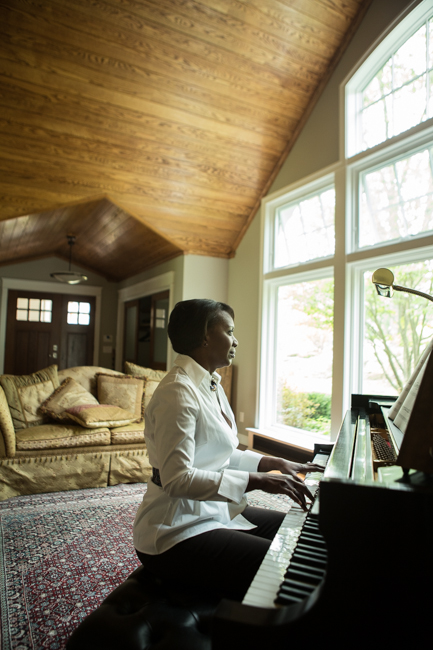
“It was devastating because that’s the last thing that I would have ever thought,” Candace Matthews says. “Not only was my mother prolific but my siblings are quite… Put it this way, no one ever had issues conceiving, except me. At the moment, it felt unfair.”
After three failed rounds of intrauterine insemination, the Matthews began exploring adoption to have the family they always wanted. In January 2001 the couple applied for a fast-track adoption course, turning a typically 10-week class into two 10-hour long ones.
“At the end of the second class, they told us that a set of twins had come up and our adoption agency wanted to submit our application as possible parents. A total of 23 families applied, and we were selected. We were ecstatic.”

When Bruce and Candace Matthews first met their 3-year-old twins, they weighed only 26 pounds, had a limited vocabulary and had been diagnosed as “failure to thrive.” They named the girls Sydney Janae and Simone Jacara Matthews, keeping their birth names as their middle names, and gave them the love, nurturing and support they had missed during the first three years of their lives.
There was soon another new development that would change the young family’s lives. That same year Matthews was offered the role of president of the SoftSheen-Carson division of L’Oreal, an offer that would mean uprooting the family from Atlanta to Chicago, and then ultimately Connecticut, closer to L’Oreal USA’s headquarters in New York.
At the time “my husband ran his own coffee shop in Marietta, Georgia,” Matthews recalls. “He said to me, ‘Is this what you went to business school for?’ And I said, ‘Absolutely.’ He said, ‘Fine, I will give it up, and follow you because somebody needs to be with the girls.’ He’s been a stay-at-home dad for 12 years, and I could not do what I do if he weren’t.”

With that decision made, the Matthews made the move to Chicago. When they settled in Connecticut three years later, the family grew with the addition of Seth Davon, a child they fostered at 19 months and eventually adopted when he was 5 years old.
As president of SoftSheen-Carson, Candace Matthews was a force to be reckoned with: she increased the brand’s profitability fourfold and raised awareness of the hair and beauty line dramatically. Her professional profile was on the rise as well, with her leadership earning her coverage on the pages of a number of lifestyle and business publications as well as a number of awards. But for all the achievements and recognition she experienced in that role, Matthews realized that her dream job wasn’t ultimately the best for her and her family.

“I was commuting an hour and a half in each direction, and sacrificing my family,” Candace Matthews says. “My girls were early in their education, struggling in school, and I couldn’t be home early enough to help them with homework. The culture of the company wasn’t such that they supported family life, so leaving to go meet with their teachers wasn’t really possible. The last straw was on September 28 of 2007, when my husband suffered a mild heart attack. I realized that this pace and lifestyle was not for us. I was giving up too much of my family for a job and the tradeoffs were too great.”

Candace Matthews says she believes divine intervention was at hand. Once she had realized she needed to leave the hectic New York pace to achieve greater work-life balance, a recruiter from Amway, a leading consumer health and beauty product seller, contact her.
“On my first visit to Amway I interviewed with eight different people, and asked them each about the culture of the company,” Matthews recalls. “And they each said the same thing. You can’t make that up: It had to be deeply rooted for all of them to talk about the importance of family and being engaged with your children’s lives and activities. It was clear that they valued a strong family life as part of success in a role at the company.
“People were saying, ‘Oh my gosh, you were the president of SoftSheen-Carson. How in the world would you give up that job?’” Matthews says now. “When things that are important to you are being compromised, you can’t do it. I have a wonderful job [now] that sends me around the world doing things that I never envisioned doing.”

And so the Matthews moved to Ada, Michigan to a farm that’s perfect for their three children, and their newest addition—an unofficial granddaughter, 3-year-old Olivia, a family friend’s daughter who considers the Matthews her second family.
It’s a new way of living that Candace Matthews wouldn’t trade for the world. “It keeps life very grounded when you have to go get your eggs from the chicken coop to cook each morning,” she says with a laugh. “Life is simple and enjoyable here. I am able to attend my children’s school activities and I am all over their homework—they wish I weren’t. I am very glad I left the hustle and bustle because the move has been wonderful for all of us. That is why our home is called Triple S Ranch, for the serenity, simplicity, and solace it provides.”
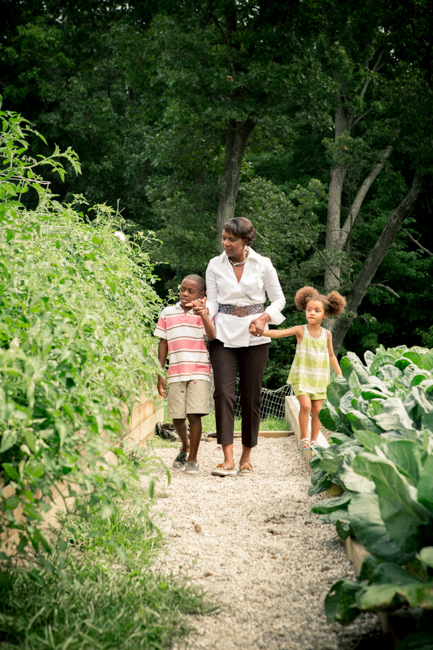
Q&A
WOW! THE YOUNGEST OF 18 CHILDREN? WHAT WAS THAT LIKE?
My background is really unique, but amazing looking back at it. My father was an AME minister born in 1903. His first wife had seven children and two of them died fairly young; she died when the remaining five were between ages of four to 11. He met my mother, who was 20 at the time, and he was 36. My mother married a widower, with all of these children, at age 20, and they had 13 more children. My father passed away in 1969, when I was 10, so my mother raised this entire family by herself. She passed away 12 years ago, but she raised this family as one family, and it was an incredible upbringing.
Having been the youngest, I learned so much from each one of [my siblings], that has really helped me become who I am today. I’m very grateful for that upbringing, despite how challenging it would have been at times. Especially when my father died and there were still six of us at home. The influence of my mother and particularly some of my siblings had a great impact on me. My brother Archie was the first businessman, and my brother Larry followed in his footsteps. I learned how to manage people from Larry and I learned how to nurture from my mother. That’s an uncommon combination, but it has served me incredibly well in the business world.

WHAT ADVICE WOULD YOU GIVE YOUNG WOMEN WHO ARE ENTERING THE WORKING WORLD AND WANT TO EVENTUALLY REACH WHERE YOU ARE RIGHT NOW?
I would advise them to find a mentor who is willing to be very honest. Many times, when you are so focused on driving your career, you don’t take the time to reflect on the good, the bad, and the ugly in yourself. A good mentor does that with you. She doesn’t allow you to say “Oh, well, this was their part.” She’ll say “What was your part of the situation? Let’s talk about that. What are you going to do differently? Now come in here, cry, get it out, and put your game face back on, because you’re going back out there to deal with it.”
You want people to be very honest. You want people to say “This is the deal. Understand what’s going on around you.” And guess what—it’s not always going to be fair! So how do you distinguish yourself in a world that’s not always fair? You deal with it in a way that doesn’t compromise who you are or your values.

Carla Harris at Morgan Stanley wrote a book called “Expect to Win” that talks about having both a mentor and a sponsor. A sponsor is the person inside your company telling decision-makers what they need to know about you. A mentor is someone who can be outside your company telling you what you need to know about yourself. You need both to help you navigate your career.
When you’re in a job, understand that it’s a two-way street: what you are bringing to them and what skills they are helping you develop. You have to understand when the relationship is no longer mutually beneficial.
Realize that we’ve both given and received the best that we can at this point. That way, you can look at your career and say “What do I need to do next? What skills do I need to put in my arsenal? Where am I going to acquire those skills?” Then it becomes a journey versus staying in a role that’s no longer a benefit to each party.
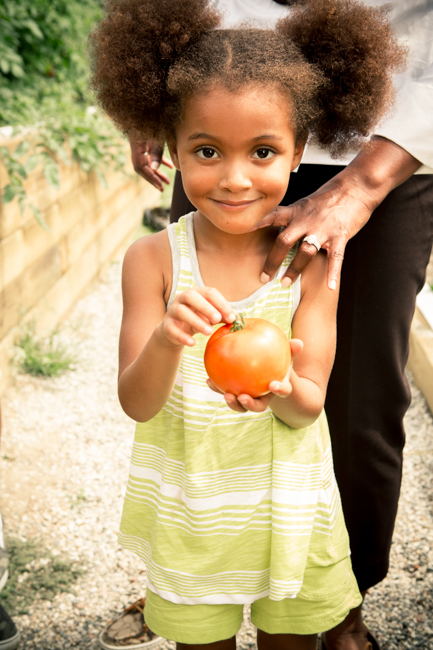
YOU WERE SO ESTABLISHED IN YOUR CAREER BY THE TIME YOU GOT MARRIED. WAS THAT PART OF YOUR PLAN?
I don’t think I consciously chose to get married when I was 40. If you had told me when I was in business school I was going to be 40 when I got married, I would never have believed that. When I turned 40, I threw myself a big birthday party, because I honestly thought I was never going to get married.
In retrospect, I would say, just like you put effort into your career, you have to put effort into a relationship. I believed “Oh, it will just happen,” or “You’ll just meet someone.” I didn’t really think about the effort that you have to put into it, just as much as anything else. I moved several times to several different cities and ended up in Atlanta, which I don’t believe is the easiest place to find a husband. (Laughs) Not at all! Thank the Lord that He put someone in my life there.
Bruce has an interesting perspective that he often shares with corporate women. Many women look for corporate executives as possible mates, but somebody’s career is going to have to take a backseat at some point. He always counsels single women to look beyond the executives to school teachers and UPS drivers. Look for someone who’s a good man who will support you in what you’re doing.
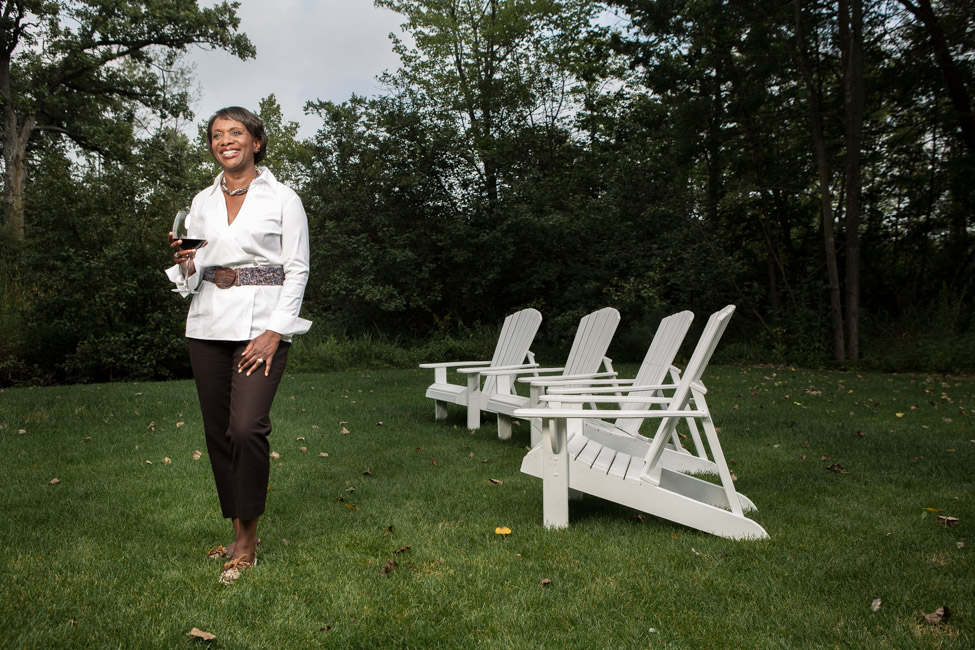
HOW DOES YOUR HUSBAND FEEL ABOUT BEING A STAY-AT-HOME DAD?
It’s definitely a non-traditional role. His career was very established, so he was comfortable with giving it up. What’s surprising is that not everyone around you is as comfortable with the decision as you are. Men would say, “Oh man, I’d love to do what you’re doing,” and Bruce would say, “Do you really understand what it takes to be at home? I bow down to stay-at-home mothers, especially single mothers. It’s a lot of work.” He’s been a stay-at-home dad for 12 years. It works wonderfully for our family, and Bruce is tremendously supportive of my career.
My job is incredibly busy and takes me away from home and out of the country so much. Someone needs to be with the family. What better person than Bruce?
It’s worked masterfully for us, but in order to have a successful marriage when the woman is the primary breadwinner, she can’t say, “I make the money, you don’t.” She has to check that at the door. You as a couple are still jointly in everything together, and so you have to have that mindset in every single thing you do, or it won’t work.

YOUR FARM IS SO LOVELY! HOW DID YOU FIND IT?
It was a fluke. We ended up finding a piece of property that had a barn on it with stables already there. My husband grew up with horses; his grandfather and great-grandfather being sharecroppers. He was from southwest Louisiana [and] from a Creole family, so he was very familiar with horses. I was not. He said, “Oh, look, there’s stables already installed, let’s get the horses.” And I said, “O-kay.” So we did, and it’s been wonderful for him, wonderful for the kids, and even wonderful for me. We have since added sheep, goats, chickens, and even a llama. It’s like Green Acres—it’s the place for me.
YOU TRAVEL A LOT FOR YOUR WORK AT AMWAY. WHAT ARE THINGS LIKE WHEN YOU COME BACK HOME?
Well, I’ll walk in the door, and Livvy runs up to me and screams “Nana!” And she’ll grab my leg, and say “Up peas (please)!” Then Seth will run next, and he’ll hug me, and say “Mommy, how was your trip?” At first Sydney will act like she doesn’t want to hug me. She’ll come by and coyly say “Hi, Mommy. Do you need a hug?” To which I respond, “Oh, are you offering me one? Gladly!” (Laughs) And then Simone will saunter in last. Then when it’s all said and done, Bruce comes over and says, “Okay, Olivia, out. Let me give her some love.”
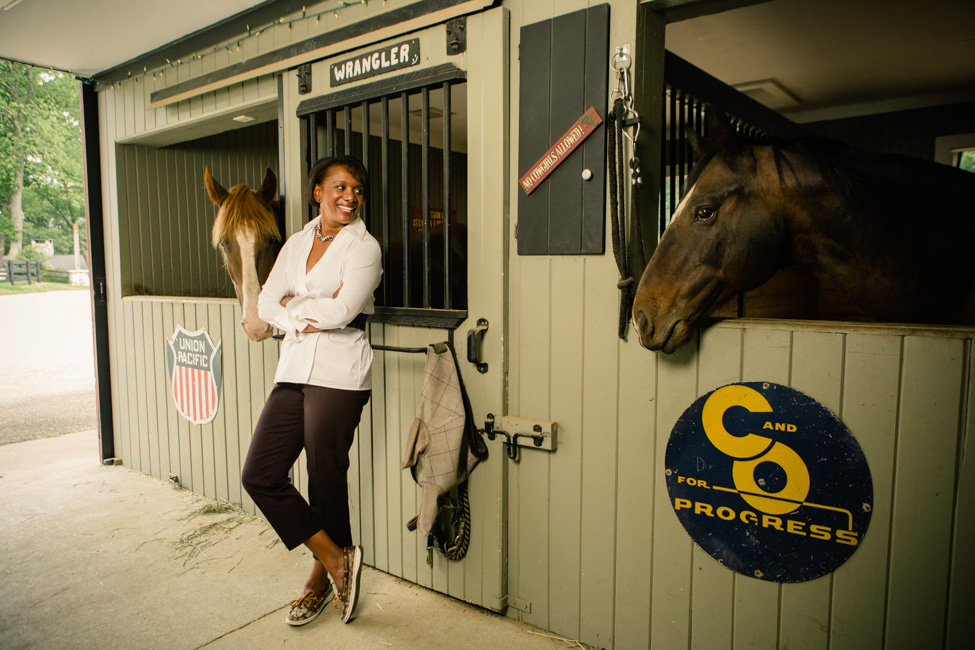
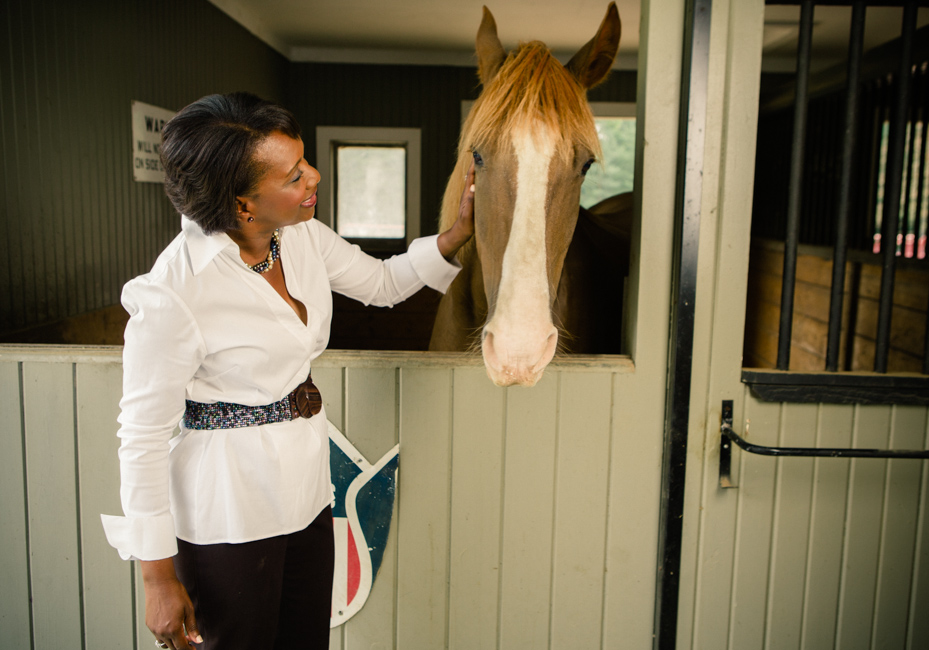
HOW WOULD YOU DESCRIBE EACH OF YOUR KIDS’ PERSONALITIES?
Seth is one of those kids with a great spirit. He has this big smile. Bruce has taught him that he is the young man of the house, so if Daddy’s ever gone, these are the things that you have to do: You have to look after your sisters and protect your mom. He’s raising him to be the junior man, so he knows his chores, which are managing the animals. He’s being trained to be the young man of the house, which is a really cool thing to watch. He loves when his older male cousins come because there are more men in the house. He does live in a house full of women, and it’s not always fun or fair! (Laughs) But he keeps a great spirit about it.

Sydney and Simone are identical but have very different personalities, you can tell. Simone is more reserved and very thoughtful. She has to process everything first. She’s very comfortable with who she is, but she is definitely on the reticent side of things. She has an incredible sense of humor that we didn’t really see until middle school, when she started letting it show. But she’s more reserved when you meet her.
Sydney, on the other hand, we dubbed “the cruise director” because she’s always in the middle of everything. Sydney is more outwardly social and talks incessantly. She loves fashion, and is more concerned with her looks. They’re very, very different, yet [they’re each] becoming beautiful young women.

WHAT’S THE HARDEST THING ABOUT BEING A MOM?
Having twin teenage girls. (Laughs) I say that because they’re at that awkward and hormonal stage where everyone says “Oh, don’t worry, they’ll come back when they’re 17 or 18.” But then every so often you’ll see a hint of maturity that tries to peek through—you know it’s coming, but man, when will it get here?
It’s funny. I’m complaining, but then I look back at my mother, and I have no idea how she handled five of my sisters, who all were teenagers when my father died. I think it’s crazy for me, but the reality is what my mother endured at this time of her life is far more than I ever will. There are days when I say to my husband, “Boy, I wish my mother were here today, because there is so much I could learn from her!”

Seth is 9, so we are raising a young African-American male to be a great African-American man. And that means teaching responsibility early in his life. For example, Seth is supposed to bring his clothes to the laundry room after his bath. But he started hiding them behind the door. So I had to remind him to go get his clothes. It’s not so much that it’s a big deal, it’s teaching him about responsibility. How do you teach your children that there will be things that aren’t fair, so you don’t take the easy way out. Bruce and I are teaching these things now, even though he doesn’t understand the importance at his age. That’s one of the challenges of raising a son.
The one thing we have to accept is that we have put our children in an environment that’s very different than the one in which we grew up. You have to make a conscious effort to expose them to everything so they understand that different people live different lives. I have had this conversation with friends, with siblings—“What do you do?”—and nobody has the right answer. We just keep trying.

YOUR DAUGHTERS WERE DEEMED “FAILURE TO THRIVE” WHEN YOU FIRST ADOPTED THEM. HOW DOES IT FEEL TO GO FROM HOLDING THEM WITH THAT DIAGNOSIS IN MIND, TO THEM NOW BEING ACCOMPLISHED YOUNG WOMEN IN THE 9TH GRADE?
It’s amazing to have watched their progress. It really shows that nurture and nature both play a role, especially when you adopt children. You have to understand where nurturing can take you, and also, what is part of the nature part that you’ll either have to compensate for or help them through. Parenthood is not for the faint of heart, but it is such a joy when you see something happen and you get to say, “Oh my gosh, they’re blossoming.”
Take Simone, for instance. Simone is phenomenal piano player. Both girls play the piano, and Sydney also plays the violin. Simone and I have this running joke because I play as well – “When you play better than me is when we’re in trouble.” Simone is now at the point where she plays better than me. Last November at her sonatina festival she played a six-page piece entirely from memory. So when you see something like that happen, you realize how far they’ve come and the accomplishments they’ve achieved. Even though in Simone’s mind, she doesn’t see it, she doesn’t get it. Yet I can see it. And that brings Bruce and I tremendous satisfaction and pride.
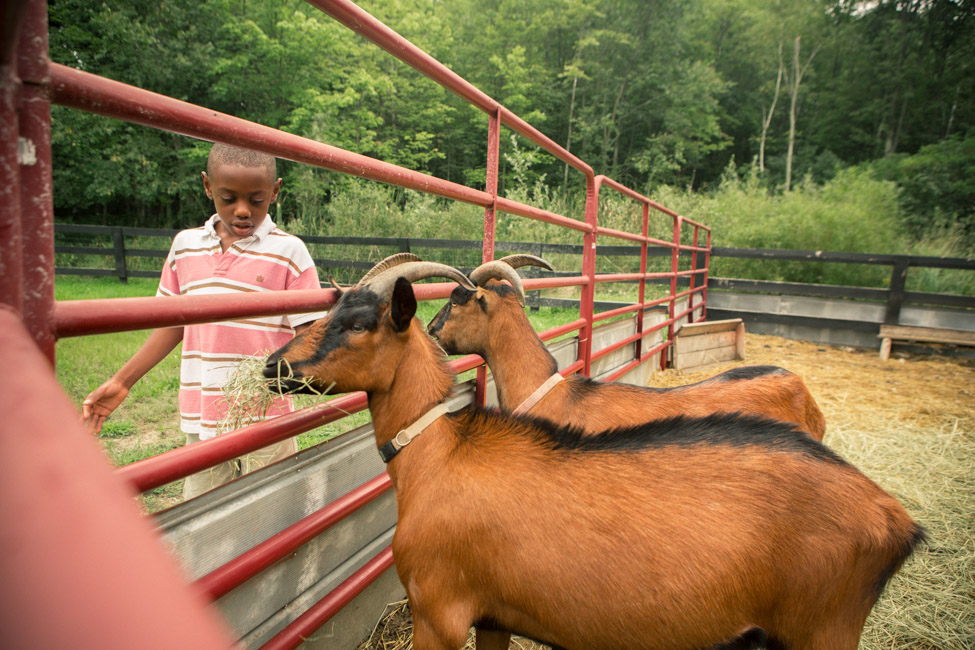
WHAT KIND OF PEOPLE DO YOU HOPE YOUR KIDS GROW UP TO BE?
They don’t have to be me. What I want is for them to grow up to be secure in who they are, and doing something that makes a difference in people’s lives. I want them to get passionate about something. That’s one of the things that I’ve noticed with their lack of early childhood development, and with children who are in foster homes early on—there’s a bit of a detachment. The girls don’t have that as much, but what I do notice is that they need to develop a passion. Whatever it is they choose to do, we will support them, but I want to see their passion for something ignited. That’s what I really wish for them.
